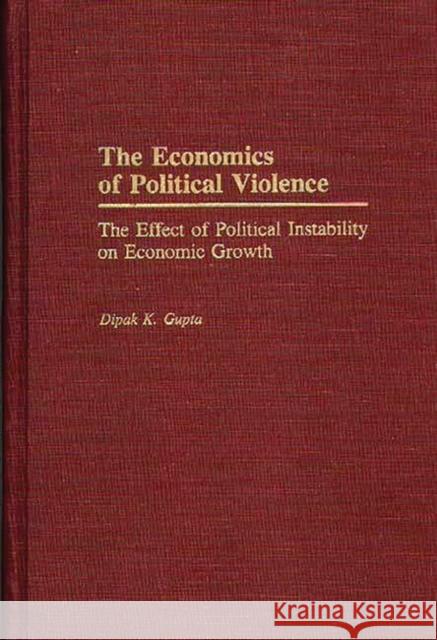The Economics of Political Violence: The Effect of Political Instability on Economic Growth » książka
The Economics of Political Violence: The Effect of Political Instability on Economic Growth
ISBN-13: 9780275932565 / Angielski / Twarda / 1990 / 352 str.
In this pioneering volume, Dipak Gupta takes a multidisciplinary approach to the study of the causes of political violence and the effects of political instability. The first work to expand the scope of traditional economic growth models to include political instability, "The Economics of Political Violence" examines the motivations an individual might have for participating in an act of political violence. Establishing the conceptual linkages between micro-level, individual-based theory and aggregate structural theories of political violence and revolution, Gupta also constructs a composite measure of political instability. He then develops an integrated model of economic growth that incorporates political instability as an endogenous variable. Students and scholars in both political science and economics will find this book enlightening reading.
Gupta begins by examining both the contributions various social science disciplines have made to the study of political violence and the theories of collective behavior that have guided many previous studies. Turning to a focus on the individual, Gupta analyzes the behavioral foundations of rebellion and explores the influences of the environment on individual political action. The next four chapters address political instability from a variety of perspectives. Gupta describes the relationship between political instability and the economy, offers an empirical definition of political instability, discusses structural explanations of political instability, and looks at the effects of political instability on economic growth. In his concluding chapter, Gupta makes policy recommendations based on the foregoing analysis. An appendix presents the index for political instability developed by the author.











